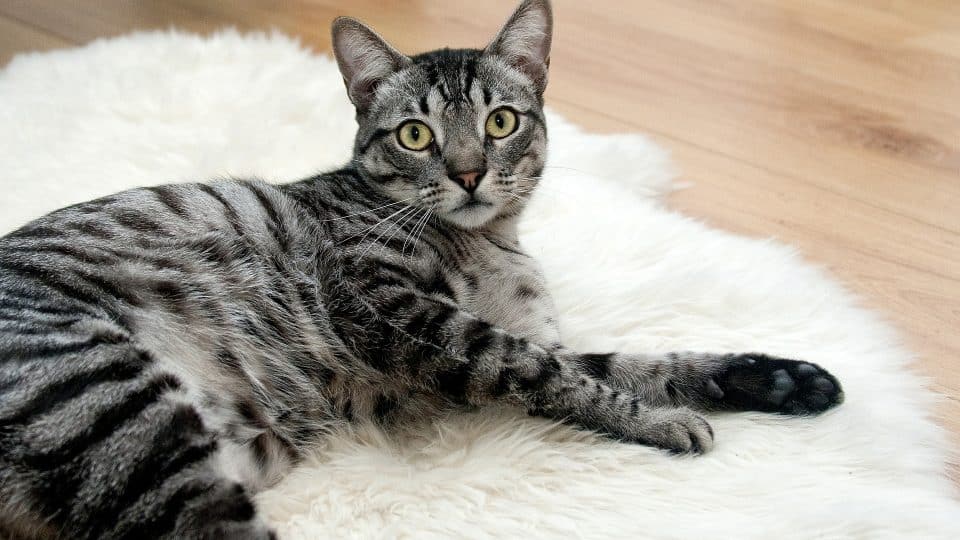Is your cat’s bathroom habits different from the usual? He may be experiencing dietary tolerance or what commonly known as “sensitive tummy.”
From eating food too fast or trying a new medication, there are a variety of reasons for cats to get an upset stomach. If your feline friend is a sensitive eater, these tips from a Dubai pet food company may just be what you need to soothe his condition.
1. Determine whether it’s a serious health issue
Before anything else, you should let your vet examine your pet to rule out serious health problems. Don’t wait to contact your vet as soon as you notice any of these signs:
- Blood present in the stool
- Changes in appetite, thirst, and other usual behavior
- Chronic vomiting
- Darker than usual stool
- Defecating outside the litterbox
- Persistent loose stool
- Struggling or vocalizing in the litterbox
Keep in mind that felines are masters of hiding their illnesses and obeying the “wait and see” method can be quite dangerous. After your vet has thoroughly examined and determined that your cat has dietary intolerance, the next tips can help.
2. Feed food ideal for sensitive stomach
Your vet may recommend you change your cat’s diet. One good alternative is a low-residue food that has a special blend of fat, fiber, and protein. The carb and protein sources in these foods are also low-antigen, which prevent allergic reactions in some cats.
When you purchase sensitive-stomach food, consider one that contains prebiotics that can tailor the bacterial load in your pet’s digestive tract. Compared to fibers, prebiotic feeds and supports the good bacteria, helping it grow. If you have a hard time looking for sensitive stomach cat food near you, try pet food delivery for convenience.
Once you find a good diet for your cat, make sure to stick to it. For cats with sensitive stomachs, switch diets gradually. Moreover, consider not changing carb or protein sources and avoid giving any fatty treats.
3. Pay attention to the entire digestive system
Most cat owners think that the digestive system only involves the gut. However, the digestion process really starts the moment the food goes in your pet’s mouth. Providing oral care to your cat early on prevents bad breath, bleeding gums, and other dental diseases that may affect his gut health.
Health problems begin when food particles get lodged, and bacteria begin to build-up in your cat’s mouth. This forms plaque and tartar which causes gingivitis and severe periodontal disease. Bacteria can enter your cat’s bloodstream, not only damaging the gut but also the heart, kidneys, liver, and lungs.
Brushing your feline’s teeth regularly and scheduling dental visits regularly is critical to your pet’s overall health.
4. Keep track of what your cat eats
If you just found out that your cat has a sensitive stomach, you must monitor his food intake. As much as possible, don’t free feed or leave food out all day so that you can keep an eye on the amount of food your cat will be eating. Also, avoid feeding table scraps or any leftovers as many human foods are not suitable for cats which may cause stomach upset.
Feeding table scraps actually encourages begging. This will be a challenging behavior to break later on which will make your cat less likely to eat his proper food. Human foods that aren’t suitable for cats, include:
- Alcohol
- Cheese
- Chocolate
- Coffee
- Energy drink
- Grapes and raisins
- Milk
- Onions and garlic
If you think your cat has accidentally consumed toxic human foods, try to determine how much he ingested and contact your vet immediately. In most cases, small quantities may not be a problem, but larger quantities may need urgent treatment.
Be a responsible pet parent
Being a cat parent is no easy job, much more if you have one with a sensitive stomach. Remember, it’s your responsibility to make certain that your feline friend only eats what is right for him. Taking good care of your cat is the best way for you to enjoy long years with your pet.
AUTHOR BIO
Farah Al-Khojai is the Managing Partner of Pet’s Delight. A passionate entrepreneur, Farah holds a Bsc in Government from the London School of Economics. She is always on the lookout for new opportunities to develop and grow the pet and equestrian retail and wholesale market in the UAE and beyond, and is proud to be at the helm of the first and the largest pet care provider in the market representing world-class brands including Orijen, Applaws, Hunter, Savic, Flamingo, Ruffwear and Rogz.

Leave a Reply